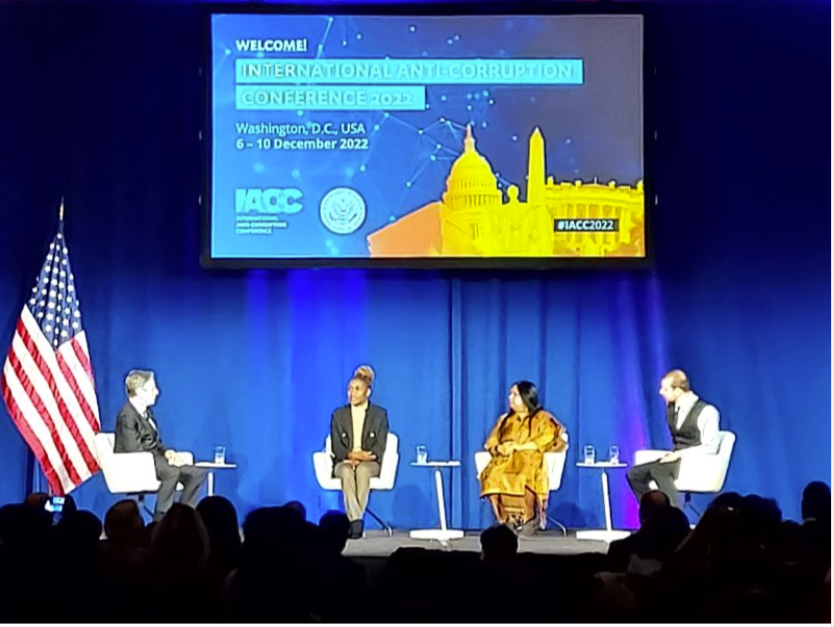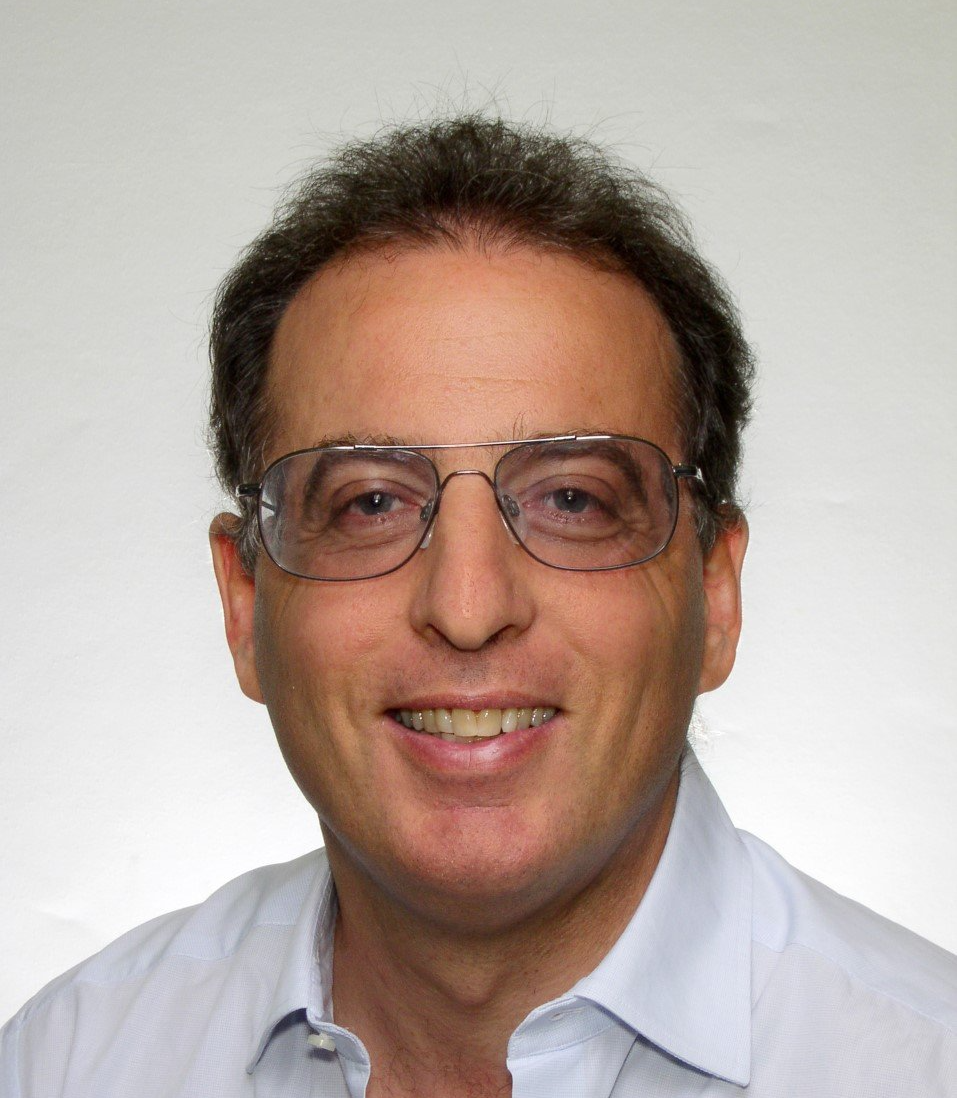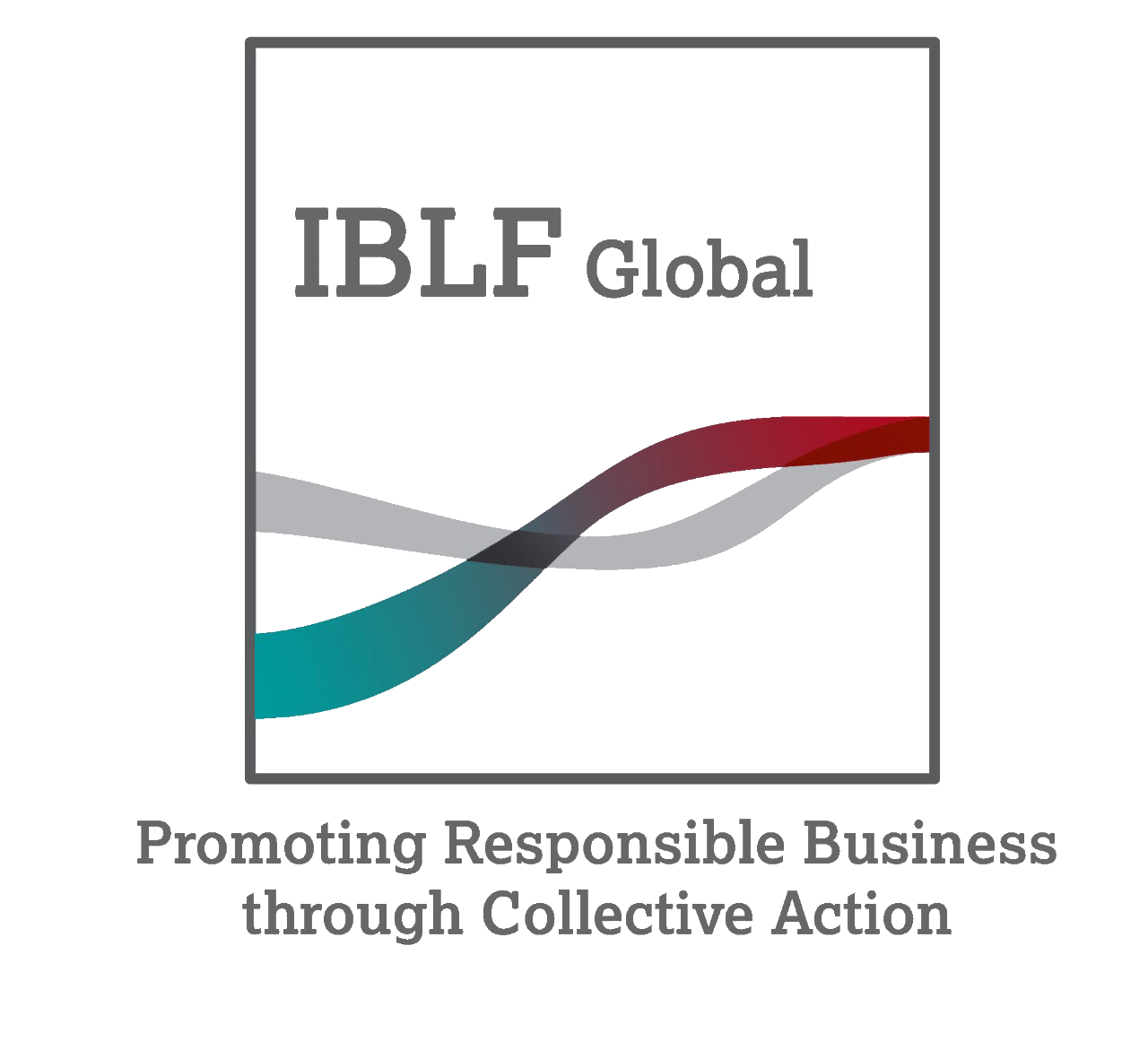Impressions from Washington DC IACC Conference
15 December 2022
Reflecting on the International Anti-Corruption Conference (IACC) in Washington DC last week, here are some of my takeaways from this amazing “Festival of anti-corruption”. Recordings of the sessions can be found here.
It was inspiring to see the passion and courage of the participants, so many of whom are risking their lives and livelihoods every day for the sake of transparency and justice. And some of them are succeeding, step-by-step, in engineering change in their societies. US Secretary of State Blinken’s “fireside chat” with three anti-corruption campaigners showed what is possible (see photo following).

US Secretary of State Blinken and anti-corruption campaigners at IACC
Young people can have a significant impact, for example through monitoring of elections, public procurement and state budgets. The panel on Mobilising Youth for Uprooting Corruption provided dozens of examples. There’s a case for encouraging more educational and capacity-building programmes. And governments could do more to harness the energy of young people to support their own efforts at combating corruption.
The US Government, as the co-host, presented a well thought-out anti-corruption strategy, aligning different parts of government: USAID’s Administrator, Samantha Power, launched a new Anti-Corruption policy. I found the USAID sectoral approach particularly convincing. At the conference, there could have been more on the healthcare sector, which, at least in our experience, is one of the frontlines in the fight against corruption.
Beyond the US, Moldova’s inspirational President, Maia Sandu, showed how much can be achieved in the most challenging circumstances. At future gatherings it would be great to see positive case studies from other governments, especially in the developing world.
The links between anti-corruption and environment/climate change were well explored in a number of sessions. Given the legal reform trends in the EU, the convergence of anti-corruption and human rights could have been given more exposure. Still, it was well covered in one panel on "Knowledge is Power: The Case for Human Rights Due Diligence in Global Supply Chains".
The private sector was present at the conference, but it felt like a drop in an ocean of civil society. Companies can be a powerful ally in promoting business integrity to employees and SMEs all over the world, and can also influence governments and civil society. Investor sentiment, consumer demand and the rise of ESG are changing the business landscape and offer new opportunities to do this.
The challenge for everyone in this field is to avoid getting depressed at the slow pace of progress. From what I saw during the conference the best antidote is patience, creativity, a healthy dose of humour, - and in-person gatherings like this one, where you can discover first-hand that you are not alone.

Article by CEO of IBLF Global
Brook Horowitz

